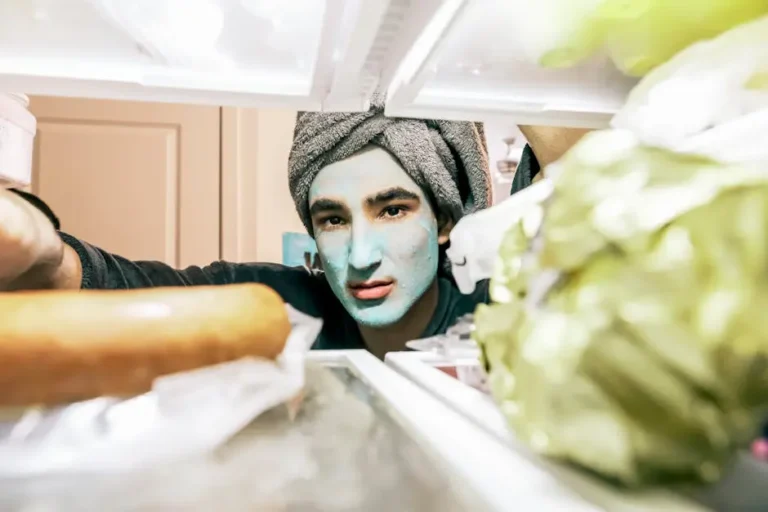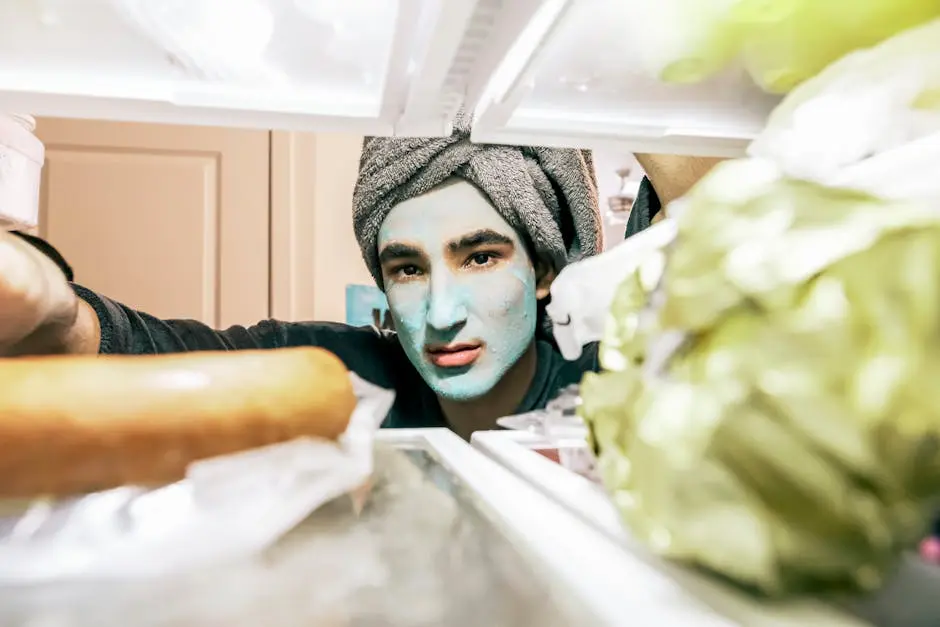Acne is more than just a skin condition; it’s a reflection of our internal health. While topical treatments and medications are commonly used in acne treatment, the role of diet is often overlooked. What we eat can significantly influence our skin’s health. In this blog, we’ll explore the connection between diet and acne, leading to healthier skin from the inside out.
Understanding Acne: Causes and Factors
Acne is often perceived as a teenage issue, but it can affect individuals of all ages. Understanding the causes of acne is crucial for effective prevention and treatment. Factors like hormones, genetics, and lifestyle choices can play a significant role in its development. For instance, hormonal fluctuations can increase oil production, leading to clogged pores and breakouts. Additionally, stress can exacerbate existing acne, signaling how our mental state impacts our skin health.
Another contributing factor to acne is diet. Certain foods can trigger inflammatory responses in our bodies, leading to more acne lesions. The link between high-glycemic foods, like sugary snacks and white bread, and acne is well-documented. They can lead to spikes in insulin levels, which can trigger the production of excess oil. Hence, understanding the causes of acne is not just about skin care but also about making mindful dietary choices for better skin health.
Moreover, we must consider the impact of our environment and habits, such as smoking and lack of sleep, which can also aggravate acne. It is essential to adopt a holistic approach to tackle acne effectively. By addressing both external factors and internal health through diet, we can begin to see improvements in our skin. This understanding lays the groundwork for enhancing our overall wellness and skin health.
The Science Behind Diet and Skin Health
Research indicates a strong connection between diet and skin health. For instance, the intake of certain nutrients can influence inflammation levels in the body. Omega-3 fatty acids, found in fatty fish and flaxseeds, are known for their anti-inflammatory properties. These healthy fats can help reduce the redness and swelling associated with acne. It’s valuable to remember that what we consume has a direct impact on how our skin behaves.
Antioxidants also play a vital role in protecting our skin from damage and supporting its repair. Foods rich in vitamins A, C, and E, such as leafy greens, citrus fruits, and nuts, can help combat oxidative stress. Oxidative stress can worsen acne by increasing inflammation and slowing down healing processes. Thus, enhancing our diet with antioxidants is a wonderful strategy not only for acne treatment but also for maintaining overall skin health.
Furthermore, the gut-skin connection has gained attention in recent years. A healthy gut microbiome can positively influence our skin health. Fermented foods such as yogurt, kimchi, and kombucha can aid in maintaining gut health. By incorporating these foods into our diet, we essentially support our skin’s health from within, making it an integral part of any acne treatment strategy.
Foods to Include for Better Skin
When it comes to improving skin health, certain foods stand out due to their skin-loving properties. Leafy greens, such as spinach and kale, are packed with vitamins and minerals necessary for skin repair and rejuvenation. These vegetables contain high levels of antioxidants that combat free radicals, ultimately preventing skin damage and breakouts. Incorporating a variety of colorful vegetables and fruits into your meals can drastically improve skin health over time.
Another key player in skin health is nuts and seeds, notably almonds and chia seeds. These foods are rich in vitamin E, which aids in skin repair and protection. In addition to that, they provide healthy fatty acids necessary for maintaining skin moisture. A handful of nuts as a snack can provide both nutrition and satiety while promoting better skin health.
Don’t forget about hydration! Water is essential for every cell in our body, including our skin. Staying hydrated helps maintain skin elasticity and can prevent dryness, which in turn can minimize acne outbreaks. Herbal teas and infused waters are excellent alternatives to plain water, providing additional health benefits without adding sugar. Adequate hydration, combined with a nutrient-dense diet, sets the stage for clear and glowing skin.
Foods to Avoid for Clearer Skin
Just as there are foods that promote skin health, there are those that can trigger breakouts. High-sugar foods are notorious for leading to insulin spikes, which can exacerbate acne. Simple carbohydrates, such as pastries and sugary drinks, not only contribute to weight gain but can also negatively impact our complexion. Limiting these foods can be a significant step towards achieving clearer skin.
Processed and fast foods are another category to watch out for. These are often high in unhealthy trans fats and preservatives that can trigger inflammation in the body. Moreover, they provide little to no nutritional value. Opting for whole, unprocessed foods instead will not only improve your skin but also enhance your general health. Just as nourishing your body with wholesome foods boosts your internal health, it will also reflect on your skin’s appearance.
Additionally, dairy products have been linked to acne in some studies. Milk and cheese can cause hormonal fluctuations that may lead to breakouts. While everyone’s body reacts differently, it can be beneficial to observe how your skin reacts after consuming dairy. Transitioning to plant-based milk alternatives may provide a better option for those seeking clearer skin without sacrificing flavor or nutrition.
The Impact of Hydration on Acne Treatment
Hydration is one of the cornerstones of skin health. While we often focus on what we eat, we sometimes neglect how much we drink. Our skin, being the largest organ, requires sufficient water to remain plump and resilient. Dehydration can lead to dry skin, which in turn can cause overproduction of oil as the body tries to compensate. This excess oil can clog pores and lead to acne.
Moreover, hydration aids in detoxification. Drinking enough water helps your body flush out toxins, reducing the likelihood of acne caused by internal imbalances. By ensuring proper hydration, we’re actively helping our bodies eliminate waste that could otherwise lead to skin issues. Aim to drink at least eight glasses of water a day, and consider herbal teas or water-rich fruits and vegetables to boost your intake.
It’s also worth noting that proper hydration can help mitigate the effects of medications used for acne treatment. Some treatments can cause dryness, which can worsen irritation. Keeping your skin well-hydrated can offset these side effects, allowing for a more balanced and effective approach to managing acne. In summary, prioritizing hydration complements dietary strategies for achieving clearer and healthier skin.
Integrating Dietary Changes into Your Routine
Changing your diet is not always easy, but small, incremental changes can make a big impact. Start by gradually incorporating more fruits, vegetables, and whole grains into your meals. Aim for variety in colors and types to ensure you’re getting a broad spectrum of nutrients. Consider keeping a food diary to track your intake and identify areas for improvement. This can also help you notice any correlations between your diet and skin condition.
Meal prepping can also simplify the integration of healthier foods into your routine. By preparing your meals in advance, you’re more likely to stick to your dietary goals. Make use of tools like a slow cooker or instant pot for convenient, healthy meals that save time during busy weeks. Being proactive about meal planning can help you stay focused on your skin health journey.
Lastly, don’t hesitate to consult a healthcare professional or nutritionist if you’re unsure where to start. Professional guidance can provide you with tailored advice that fits your personal health needs and lifestyle. Remember, making dietary changes takes time, and it’s essential to be patient with yourself as you work towards healthier skin. Through consistent effort, you’re likely to see improvements that not just reflect on your face but also foster a sense of well-being.
Embracing a Skin-Friendly Diet for Acne Relief
By understanding the relationship between diet and acne, we empower ourselves to make informed choices that can lead to clearer skin. While dietary changes might not provide instant results, the long-term benefits for our skin health are undeniable. Remember, a balanced diet not only supports our overall well-being but also paves the way for a healthier complexion.


